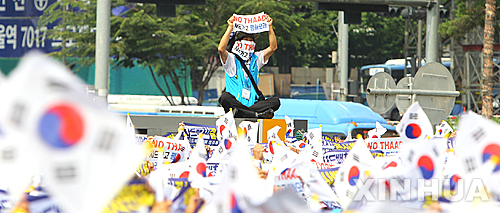In Search of Korean values
Michael Breen – The Korea Times
In its research last year to develop the new national brand ― Creative Korea ― the Ministry of Culture, Sports and Tourism came up with three key national values: creativity, passion and harmony.
But are these really the core values of Korea?
Harmony could be. It fits with the long Confucian tradition. The trouble, though, is that Confucius has left the building. The lock was changed and he wasn’t given a new key. You just don’t see people striving for harmony by accepting their place in orderly relationships. Something else seems to have taken over.
Passion to me seems like more of a description of the Korean character than a value.
And creativity is something we need for the next phase of economic development. It’s an aspiration, not something that is deeply valued among Koreans.
I would suggest that these attributes are not Korea’s most cherished values. So, what are?
I’ve noticed that in approaching this question, many people, Korean and non-Korean alike, tend to reach into history and look for distinctive features of Koreans.
But values do not need to be original or exclusive. They are simply what the people consider most important.
In Korea’s case, this is not an easy question because, I would suggest, the country’s values are changing. Until recently, for example, it was clear that patriotism and ethnic identity were very important. But Korea is now a major trading nation very exposed to the outside world. Its people, once huddled in compact villages, now travel overseas in large numbers. This experience has weakened that way of thinking that drove the early stages of national development.
Similarly, hard work once appeared to be a strong value. Koreans were famous for the long hours they put in. The prevailing view in Korea is that success comes, not to the smartest or the luckiest, but to the person who works the hardest. But in the last two decades, this society has become accustomed to its hardest jobs being undertaken by workers from foreign countries. Since the end of the six-day work week, Koreans have come to value their leisure.
What else do Koreans value? Education is highly prized. Family is very central. But the closer you look at these areas, the more you get the conviction that they are not what they appear to be. For example, the passion for education seems to be a passion for credentials, rather than for learning; where you would expect love and support, so many families in Korea can be hives of resentment and stress.
To find modern Korean values, we need to look at what Korea has become in the last 30 years. This is now arguably the most vibrant democracy in Asia bar Australia and New Zealand. Unlike other Asian democracies, there is no ruling party that looks like it will remain in power for 50 years. Opposition candidates have won two of the last four presidential elections (Kim Dae-jung in 1997 and Lee Myung-bak in 2007).
Korea’s sixth democratically elected president, the current leader Park Geun-hye, is a woman. None of America’s 43 presidents have been women and only two British prime ministers since 1721 have been women.
The feistiness of Korean democracy is a direct result of the new values that Koreans take very seriously and which, when thwarted, can drive them to fury ― personal liberty, equality before the law, justice and popular sovereignty (the idea of “We the People” being in charge).
The main difference now between, say, American and Korean democratic values is that the Koreans have accepted the need to sacrifice themselves in pursuit of the economic success of the group ― i.e., the country ― while for the Americans, national economic strength serves the purpose of allowing the individual to pursue happiness. I expect in time the Koreans will adopt this same value.
Even now, though, the South Koreans have more in common with other democracies in North America, Europe and in Japan, Taiwan and elsewhere than they do with their historical neighbors in China and certainly more than they do with their wayward brethren in North Korea.
It is this difference in values, rather than power politics, which explains why the South will not choose China over America and why they will not unify with the North until it has shed its dictatorial leadership and dropped its racist values.


























































